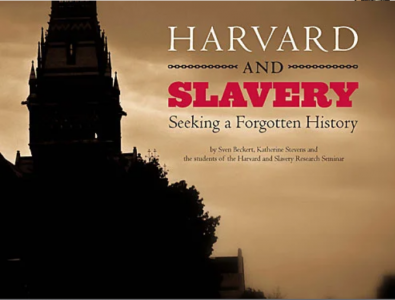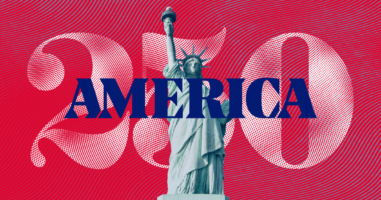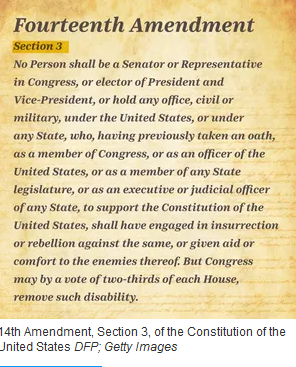
American history is partially defined by myths. These are the stories we well about our country that are true in the mind of the storyteller but not necessarily independent of that person. These stories have a life of their own. They may become embedded in the texts we use to teach. They may be true to us but not to someone else. To face the truth of the falsity of a myth that we believe to be true is a challenge often avoided. And when people in the past yet alone the present act on the basis of the myth, then drawing the line between myth and reality is even more difficult.
The prominent myths of the American culture – including one new one – are:
1. the myth of the Empty Land
2. the myth of Stolen from Africa
3. the myth of no slavery in the North
4. the myth of the Lost Cause
5. the myth of the Stolen Election.
These myths should not be dismissed since they are not true. They are true in the minds of the people who believe in them and who act on the basis of them. Therefore they have to be taken seriously.
HARVARD AND THE MYTH OF NO SLAVERY IN THE NORTH
On April 26, 2022, Lawrence S. Bacow, president of Harvard University, and Tomiko Brown-Nagin, chair of the Presidential Initiative on Harvard and the Legacy of Slavery and dean of the Harvard Radcliffe Institute, publicly challenged the myth of no slavery in the North in a press release.
Contrary to popular narratives, during the 17th, 18th and 19th centuries, slavery was fundamental to New England’s economy. It was legal in Massachusetts, where Harvard is based, until 1783. By that time, Harvard was almost 150 years old.
To be fair, Harvard acknowledges that it is not the first to address the subject of slavery in the North.
Harvard is certainly not the first institution of higher learning to acknowledge these truths. Others in the United States and around the globe have documented their own ties to slavery. More than 90 institutions have joined the Universities Studying Slavery consortium, anchored at the University of Virginia, whose mission is to share best practices for addressing racism and human bondage in our histories.
Nor is this legacy unique to universities. In recent years, historians have documented that American presidents, members of Congress, U.S. Supreme Court justices and leading companies have significant ties to slavery.
Still, with all due respect to Brown which pioneered the collegiate investigation in 2003 and the Jesuits of Georgetown who have committed $100 million to the descendants, Harvard does command a special place of honor as the oldest, wealthiest, and most prestigious college in the country. Its name is a global brand.
SLAVERY AT HARVARD
According to the press release, slavery at Harvard existed on three levels:
1. slavery on the campus itself which would have ended in 1783 when Massachusetts abolished slavery
2. slavery in the households of people affiliated with Harvard which also would have ended in 1783 when Massachusetts abolished slavery
3. slavery in the lands in which Harvard the institution and the people who ran Harvard did business with especially in the South and the West Indies – this connection lasted as long as slavery remained legal in those lands (Juneteenth for the South) or Harvard continued to do business with them.
We now know that Harvard leaders, faculty and staff enslaved more than 70 people of African and Native American descent. Some of these enslaved people labored at and for the university, including in the households of Harvard presidents.
Harvard’s ties to slavery and its legacies run deeper still: The labor of enslaved people enriched donors to the university, helping Harvard expand its infrastructure, grow its faculty and student body, and build its reputation. And prominent Harvard leaders and professors defended slavery, justified segregation, and promoted racial hierarchy and discrimination.
Thus a key point which Harvard enunciates is that just because you cannot see slavery in your home, community, state, or country today, does not mean you are not connected to it. Furthermore, when slavery ends, that does not mean the consequences of slavery have ended. People in the present can reap the benefits of slavery in the past even when they have nothing directly to do with it or are even aware that it existed.
Harvard is putting its money where its mouth is. It is not just talking the talk, it is walking the walk.
Harvard pledges to draw on its expertise in education to confront continuing inequities — tangible legacies of slavery — affecting communities in the United States and in the Caribbean, to which New England’s slavery economies were closely tied. We will fund this work with a commitment of $100 million, including an endowment to support these efforts in perpetuity.
Harvard states that it is open on how to proceed.
Yet we believe there are many paths forward for institutions implicated in slavery. And we invite dialogue — and civil, informed debate — about this vital work.
All American institutions have before them the opportunity to participate in a bold reimagining of our nation, characterized by investment in human potential and a renewed commitment to the ideals of our nation’s founding.
However, the very press release suggests why the civil, informed dialogue Harvard seeks will only transpire when it is preaching or speaking to the choir. This “opportunity” to dialogue easily could follow the same path as the weaponized New York Times 1619 Project and further divide the country and for the same reasons.
PURITAN HARVARD PERSISTS
The press release also reveals the institution founded by Puritans in 1636 still exists. It does so not because people running Harvard today are members of the Congregational Church. It does so in the values to which it subscribes as shown in the language used in the press release.
Slavery’s legacies persist in racial disparities in education, health, employment, income, wealth and the criminal justice system. The question before us now is how best to reckon with these realities and atone for our past. [bold added]
In an earlier blog “Enslaved” versus “Slave”: Yale, Virginia, and New Jersey (November 4, 2021) following the “Yale and Slavery in Historical Perspective Conference,” Oct. 28-30, 2021,
I wrote:
ATONEMENT
During the Yale conference on slavery, three speakers mentioned the need to atone for Yale’s history of slavery.
“Yale should acknowledge, engage, atone, and educate.”
“Yale should use its financial resources to repair and atone.”
“Yale should gather together as a community to talk about this Yale history presented at the conference history and bring it to the visible space to educate and atone.”
I will return to the Yale Conference and comment about the Harvard conference on April 29, 2022, in a subsequent blog.
In the meantime, it is important to keep in mind the religious nature of the actions by both Harvard and Yale even though both universities are no longer officially Puritan. They are asking Americans to atone.
Acknowledging the truth is not enough. We have a moral obligation to take action….
We can never fully remedy the incalculable damage caused by America’s “original sin.”
To which one may colloquially reply: Who died and made you God?
Returning to “Enslaved” versus “Slave”: Yale, Virginia, and New Jersey, I wrote:
For a Puritan-founded school, the call to atone for America’s original sin makes sense. It’s fine if Yale wants to atone for its sins but how will that play in Peoria? In New Haven? Or in Virginia?
The Yale-based blog was written just after the Republican victory in Virginia for governor. Now we are approaching the 2022 Congressional elections. I predict the call by the Visible Saints, the Elect of God at Harvard for Americans to repent will fall on deaf ears. Harvard should keep in mind how “elitist” Anthony Fauci who has tried to save lives has been vilified before venturing out in the public arena with its own call to save the American people.
Part I





This blog is a well thought out, undisputable revelation of simple truths that get repositioned for the masses. This is a great piece. How about a NYT letter to the editor??
Thank you. Unfortunately it is far too long for a letter to the editor of any newspaper. It is even longer than the standard op-ed pieces in the NYT.
Slavery was normal and accepted at the time period you cited. Stop “Presentism”. The judging of the habits and thinking of one time with today’s acceptable norms and thinking. The repayment for the sin of slavery was paid blood. From 1861 to 1865 seven hundred thousand Americans lost their lives atoning for the sin of slavery.
“Presentism” has been the subject of previous blogs and I am not sure what can be done about except to call attention to it. Perhaps I can work it in to the future blogs about Harvard ans slavery.
I never thought about the deaths during the Civil War as payment for the sin of slavery. I think I may include that too.
Hi Peter – you may want to comment on the attached. It definitely promotes the myth of the empty land. There are so many real frontiers National History Day could focus on like technology, civil rights and even the moon. Why direct students back to the myth of ‘uncharted’ lands and ‘frontiers’ which were in fact already inhabited, just not by the white Europeans. The white privilege approach at the start of this document is unsettling.
Thanks for looking at this –
Helen Nerska
Director
Clinton County Historical Association
You raise a good point. What was a frontier for the European and American settlers was not a frontier to the people already living there. I suppose one way to mark the frontier or border is in how far west the inhabitants were pushed. I wonder who makes the decisions about the topic for National History Day.